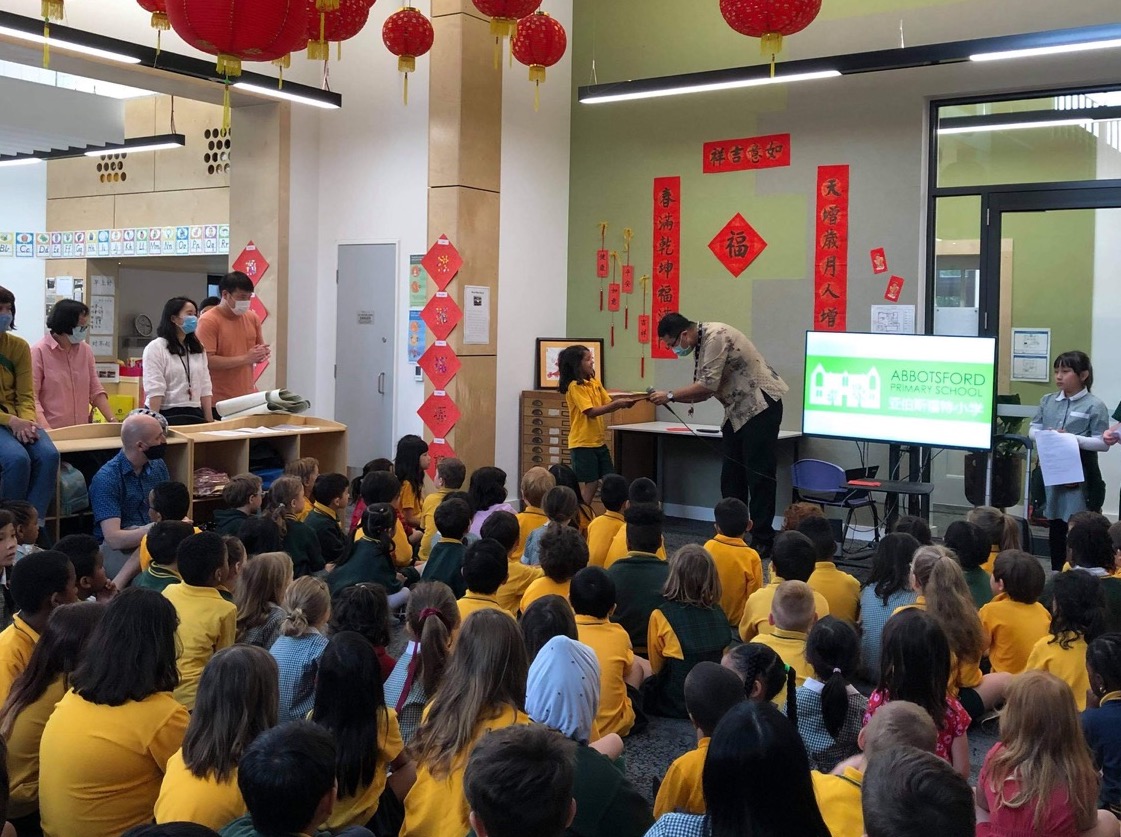
Arts & Culture
Understanding China through education

Stanley Wang is one of this year’s 40 Under 40 Most Influential Asian-Australians for his work on bilingualism in school to help foster cultural identity in Australia
Published 8 October 2021
I came to Australia from Taiwan in 1998, when I was nearly ten. I spent a month in Melbourne with relatives who took me to the local primary school in Glen Waverley. I didn’t speak English but I remember feeling very comfortable in class because I could travel at my own speed.
In Taiwan, the educational experience was very prescriptive and there was always pressure. I was a high achieving student but I don’t think I was ever excited to go to school. I got a sense of satisfaction from completing tasks and lessons but I didn’t love school whereas, in Australia, I was excited to go to school.

When I returned to Taiwan, I spent a year nagging my parents to let me come back to Melbourne. They thought it was something I had to get out of my system. They thought I’d be disheartened within a few months. I’ve always been a child who craved independence. In Taiwan, the mindset is to live a stable life close to your family – it’s a conservative and risk averse society — to try something different was a big deal.
I am an only child and it never sat comfortably with my parents that we were in different countries. Mum didn’t work because she thought spending time with her child was an investment in my development. When we were separated, that was taken away from her. A year after I moved to Melbourne and had made it clear that I didn’t want to return to Taiwan, my parents migrated here.

Arts & Culture
Understanding China through education
Initially, learning subjects through English was challenging. I remember doing a spelling test about ‘space’ and I had to learn how to spell four words. I didn’t know what ‘Venus’ or a ‘comet’ were but I memorised the sequence of letters and got 100 per cent. That made me feel very empowered and I soon caught up with other students.
Those early years in Australia helped me see how languages work. When I went to secondary school, Japanese and French were compulsory and I found it easy to grasp them because I could see how language patterns worked.
I studied Arts and Commerce at the University of Melbourne and volunteered as a tutor for the VCE Summer School on campus. The day before it started, I was invited to be welfare officer for the program instead and I was blown away by the circumstances of some of the VCE students. I realised that some students don’t begin at the same starting line because of disadvantage and I wanted to do something about that.

In teaching, you make human connections and can see the impact of what you do. Helping someone to feel inspired about something new gives me a huge sense of achievement. It makes me want to come to work every day.
At a language teacher’s conference, I bumped into my French teacher from Haileybury and shortly after the Principal of Haileybury invited me for a chat. He was looking for a new Head of Languages and was willing to give that opportunity to a 26-year-old. I started off leading about 35 people – many of them had taught me - and they were proud to showcase to their current students where languages could take you.

Politics & Society
Building stronger connections between schools and communities
After three years I took the Gap Year I’d never had. I bought a ticket to London and visited countries including Iran, Azerbaijan, Finland, Estonia and Mauritius. My travels ended in Taiwan where I became CEO of Teach for Taiwan – a program modelled on the 60 network partners in the Teach For All global network. It was time to connect with that part of my identity that had been put aside for 20 years. I spent two years travelling to rural and remote parts of Taiwan and met my wife, too.
I became Principal of Abbotsford Primary which is one of two Chinese-English bilingual schools in Victoria. In my mind, bilingual schools are the most effective way to foster understanding of culture and language in the Australian context.
For the Chinese community, there is concern than when you lose the language, you can lose that sense of Chinese identity. A lot of Chinese parents come to Australia so their kids could have a great education, but then their child feels Australian and there are issues with communication and clashes of values. I managed to navigate two worlds and I want this school to be an avenue for those with Chinese heritage to maintain the language and culture, and for those without to foster a love for language learning.

We look for opportunities in the school yard, not just in the classroom, to promote a bilingual education – like PA announcements in Mandarin. The bilingual spirit travels through everything we do. About 65 per cent of our children speak 15 to 20 different languages at home, so their engagement with Chinese and English as a second and third language is very powerful.
It’s challenging to function in another language but when children give it a go, keep an open mind and are unafraid to make mistakes as they learn, that’s beautiful to see.
- As told to Sarah Marinos
The 2021 40 Under 40 Most Influential Asian Australians is an initiative of the Asian-Australia Leadership Summit, held on 7 September, 2021.
Banner: Getty Images